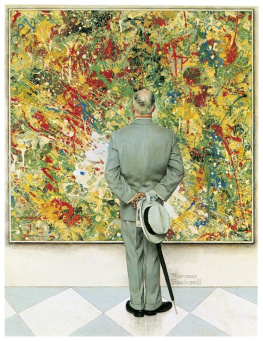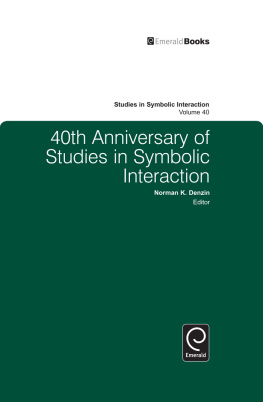Norman K. Denzin - Sociology of Law
Here you can read online Norman K. Denzin - Sociology of Law full text of the book (entire story) in english for free. Download pdf and epub, get meaning, cover and reviews about this ebook. year: 2020, publisher: Taylor & Francis, genre: Romance novel. Description of the work, (preface) as well as reviews are available. Best literature library LitArk.com created for fans of good reading and offers a wide selection of genres:
Romance novel
Science fiction
Adventure
Detective
Science
History
Home and family
Prose
Art
Politics
Computer
Non-fiction
Religion
Business
Children
Humor
Choose a favorite category and find really read worthwhile books. Enjoy immersion in the world of imagination, feel the emotions of the characters or learn something new for yourself, make an fascinating discovery.

- Book:Sociology of Law
- Author:
- Publisher:Taylor & Francis
- Genre:
- Year:2020
- Rating:3 / 5
- Favourites:Add to favourites
- Your mark:
- 60
- 1
- 2
- 3
- 4
- 5
Sociology of Law: summary, description and annotation
We offer to read an annotation, description, summary or preface (depends on what the author of the book "Sociology of Law" wrote himself). If you haven't found the necessary information about the book — write in the comments, we will try to find it.
Sociology of Law — read online for free the complete book (whole text) full work
Below is the text of the book, divided by pages. System saving the place of the last page read, allows you to conveniently read the book "Sociology of Law" online for free, without having to search again every time where you left off. Put a bookmark, and you can go to the page where you finished reading at any time.
Font size:
Interval:
Bookmark:

Henry Sumner Maine
with an introduction by Dante J. Scala
Nicholas S. Timascheff
with an introduction by Trevino
Richard Quirmey
with an introduction by Randall G. Shelder
Eugen Ehrlich
with a new introduction by Klaus A. Ziegert
Gabriel Tarde
with a new introduction by Piers Beirne
Georges Gurvitch
with a new introduction by Alan Hunt
Evgeny Bronislavovich Pashukanis
with a new introduction by Dragan Milovanovic
Richard Quinney
with a new introduction by A. Javier Trevifio

2 Park Square, Milton Park, Abingdon, Oxon OX14 4RN
52 Vanderbilt Avenue, New York, NY 10017
Product or corporate names may be trademarks or registered trademarks, and are used only for identification and explanation without intent to infringe.
Gurvitch, Georges, 1894-1965.
Sociology of law / Georges Gurvitch; with a new introduction
by Alan Hunt; with a preface by Roscoe Pound.
p. cm. (Law and society series)
Includes bibliographical references and index.
ISBN 0-7658-0704-1 (pbk.: acid-free paper)
1. Sociological jurisprudence. I. Title. II. Series.
K370.G87 2000
340'.115dc21
00-056798
ALVIN S. JOHNSON
- Introduction
THE OBJECT AND PROBLEMS OF THE SOCIOLOGY OF LAW - Chapter One
THE FORERUNNERS AND FOUNDERS OF THE SOCIOLOGY OF LAW - Chapter Two
SYSTEMATIC SOCIOLOGY OF LAW (MICROSOCIOLOGY OF LAW) - Chapter Three
DIFFERENTIAL SOCIOLOGY OF LAW (JURAL TYPOLOGY OF PARTICULAR GROUPINGS) - Chapter Four
DIFFERENTIAL SOCIOLOGY OF LAW ( continued ) (LEGAL TYPOLOGY OF ALL-INCLUSIVE SOCIETIES.) - Chapter Five
GENETIC SOCIOLOGY OF LAW - Conclusion
SOCIOLOGY OF LAW AND PHILOSOPHY OF LAW
- Introduction
THE OBJECT AND PROBLEMS OF THE SOCIOLOGY OF LAW - Chapter One
THE FORERUNNERS AND FOUNDERS OF THE SOCIOLOGY OF LAW - Chapter Two
SYSTEMATIC SOCIOLOGY OF LAW (MICROSOCIOLOGY OF LAW) - Chapter Three
DIFFERENTIAL SOCIOLOGY OF LAW (JURAL TYPOLOGY OF PARTICULAR GROUPINGS) - Chapter Four
DIFFERENTIAL SOCIOLOGY OF LAW ( continued ) (LEGAL TYPOLOGY OF ALL-INCLUSIVE SOCIETIES.) - Chapter Five
GENETIC SOCIOLOGY OF LAW - Conclusion
SOCIOLOGY OF LAW AND PHILOSOPHY OF LAW
- lxiv
- lxv
Font size:
Interval:
Bookmark:
Similar books «Sociology of Law»
Look at similar books to Sociology of Law. We have selected literature similar in name and meaning in the hope of providing readers with more options to find new, interesting, not yet read works.
Discussion, reviews of the book Sociology of Law and just readers' own opinions. Leave your comments, write what you think about the work, its meaning or the main characters. Specify what exactly you liked and what you didn't like, and why you think so.






